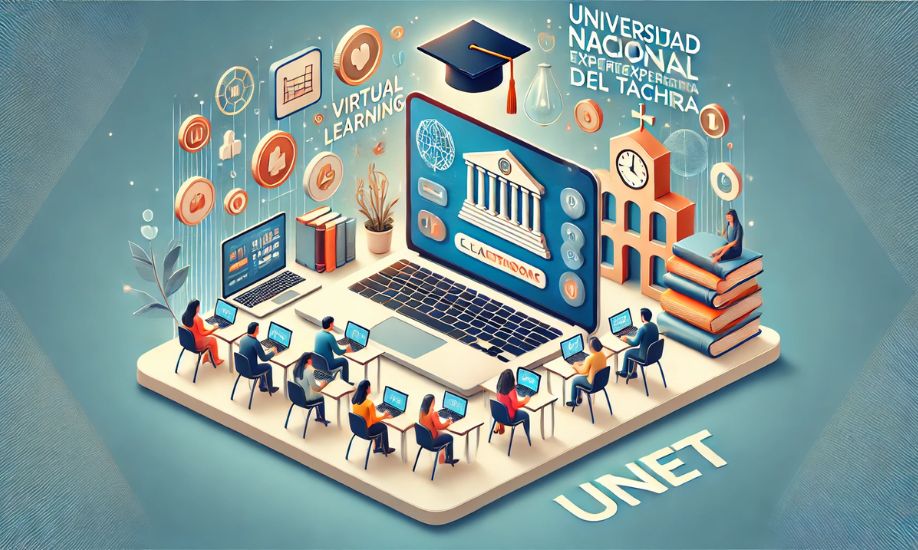The Campus Virtual UNET stands as a shining example of how technology is transforming education. Developed by the Universidad Nacional Experimental del Táchira (UNET), this virtual learning platform addresses the growing demand for accessible, flexible, and inclusive education. With its robust features and user-centered design, Campus Virtual UNET facilitates an innovative and collaborative learning environment for students and educators alike. This article explores what Campus Virtual UNET is, its features, benefits, and its impact on education in Venezuela and beyond.
What is Campus Virtual UNET?
Campus Virtual UNET is the official online learning platform of the Universidad Nacional Experimental del Táchira. It enables students and educators to connect, share resources, and participate in academic activities regardless of physical location. Using modern e-learning tools and methodologies, Campus Virtual UNET ensures that learners can engage in their studies effectively and efficiently.
The platform integrates a bimodal educational model that combines constructivist, cognitivist, and connectivist approaches. This design fosters collaboration, critical thinking, and active participation, ensuring a holistic learning experience.
Key Features of Campus Virtual UNET
1. Accessibility and Convenience
Campus Virtual UNET is accessible from anywhere via a web browser or the Moodle mobile application. This flexibility allows students to keep up with their academic activities on-the-go, ensuring no interruptions in their learning process.
2. Custom Learning Spaces
The platform caters to various educational programs, including undergraduate, postgraduate, and continuing education. Each program is tailored to meet the unique needs of its participants, offering specialized resources and tools.
3. UnetMeeting for Real-Time Interaction
A standout feature of Campus Virtual UNET is UnetMeeting, its integrated videoconferencing tool. This functionality enables live virtual classes, workshops, and meetings, creating a dynamic and interactive learning environment.
4. Continuous Communication
Campus Virtual UNET emphasizes ongoing interaction between students and instructors. The platform’s communication tools, such as forums and messaging systems, ensure that questions and discussions can take place seamlessly.
5. Technical Support and Guidance
The Unidad de Formación Virtual provides consistent technical support to users, ensuring a smooth experience for both students and educators. From login assistance to navigating the platform, the support team addresses all concerns promptly.
How to Access Campus Virtual UNET
Students receive personalized login credentials through their official UNET email accounts. To access the platform, they simply:
- Visit the Campus Virtual UNET homepage.
- Click the “Acceder” button.
- Enter their username and password.
In case of forgotten credentials, users can recover their passwords by submitting their registered email addresses through the platform’s recovery tool.
The Pedagogical Approach of Campus Virtual UNET
Campus Virtual UNET follows a learner-centric approach, incorporating the following principles:
- Collaborative Learning: Students are encouraged to work together on projects and assignments, fostering teamwork and collective problem-solving skills.
- Autonomous Study: The platform promotes self-paced learning, allowing students to manage their time and progress according to their individual needs.
- Continuous Evaluation: Assessment tools within the platform ensure that students receive timely feedback, enhancing their learning journey.
Benefits of Campus Virtual UNET for Students and Educators
For Students
- Flexibility: Students can study from anywhere, making education accessible even for those in remote areas.
- Diverse Resources: The platform offers a wealth of materials, including e-books, videos, and interactive assignments.
- Skill Development: By using digital tools, students gain essential technological skills alongside their academic knowledge.
For Educators
- Enhanced Teaching Tools: Instructors can use multimedia content, live sessions, and analytics to improve teaching methods.
- Efficient Communication: The platform facilitates easy communication with students, enabling quick resolution of queries.
- Professional Growth: By embracing e-learning, educators can stay updated with modern teaching practices.
Challenges and Opportunities
While Campus Virtual UNET has revolutionized education at UNET, it is not without challenges. Technical issues such as internet connectivity and device accessibility remain concerns for some students. However, these challenges also present opportunities for growth, such as investing in better infrastructure and providing devices to underserved communities.
The Future of Campus Virtual UNET
As education continues to evolve, Campus Virtual UNET is poised to expand its reach and capabilities. Plans for integrating artificial intelligence, gamification, and advanced analytics are underway, ensuring that the platform remains at the forefront of educational innovation.
UNET’s commitment to leveraging technology for education is a testament to its vision of creating a brighter and more inclusive future for learners everywhere.
Conclusion
Campus Virtual UNET is more than just a platform; it is a transformative tool that bridges the gap between traditional education and the digital age. By prioritizing accessibility, collaboration, and innovation, it empowers students and educators to achieve their academic goals in an ever-changing world. As it continues to grow, Campus Virtual UNET serves as a beacon of progress, exemplifying the potential of technology in education.



